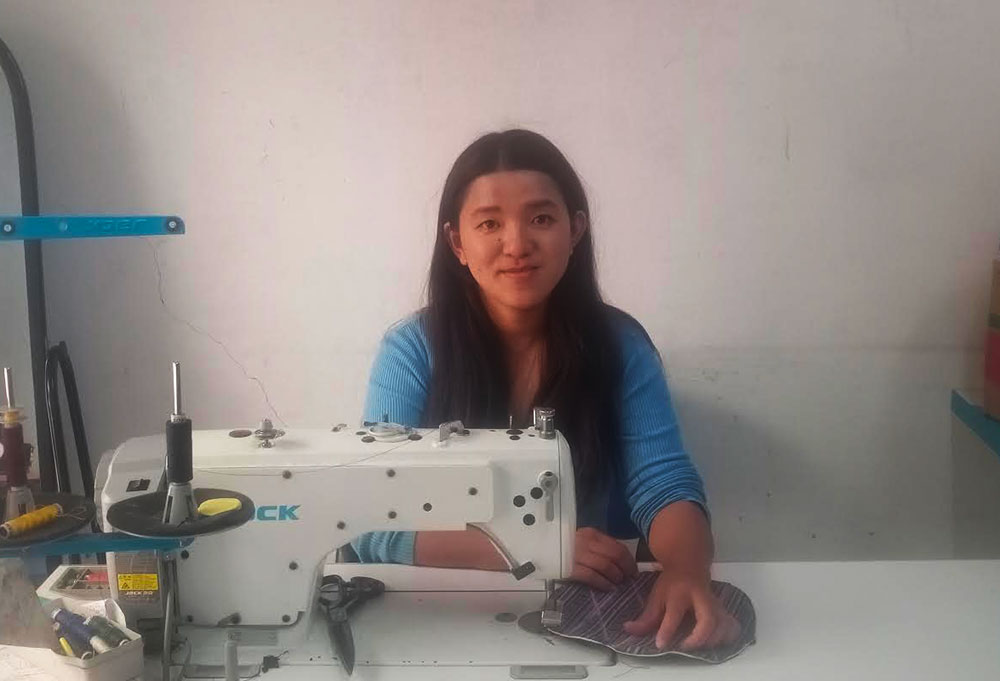Thinley Namgay
Leki Lhadon, a 24-year-old from Sarpang, is a remarkable individual whose determination continues to inspire many.
Despite being a person with disabilities (PwD), she has defied challenges to operate a successful tailoring business in Babesa, Thimphu.
She leads an independent life despite limited mobility in her left hand and communication difficulties.
After undergoing tailoring training provided by the then Ministry of Labour and Human Resources and the Disabled People’s Organisation of Bhutan (DPOB) in 2021, Leki Lhadon decided to start her own tailoring business, which she did in 2022.
The ministry and Read Bhutan provided three tailoring machines.
In addition to being self-employed, she also employs four other young people. Today, her products are sold across the country. “The demand is good,” she said. “With this business, I don’t have to ask my parents for money, even though they are willing to support me.”
However, Leki Lhadon acknowledges the challenges PwDs face in finding jobs. “I started my own business because I felt that many PwDs cannot work on equal terms with others, and many of us don’t receive equal pay in the workplace. There is a common belief that PwDs are not fit to do the job,” she said.
Before starting her current business, she worked for someone else but was not paid equally. “During training and workshops, many promise jobs to PwDs but rarely fulfil those promises,” she said.
She is determined to continue her work and create job opportunities for other young people as well. She also encourages fellow PwDs to work hard and excel in what they do.
Although DPOB has provided various training to more than 250 PwDs so far, only a handful, including Leki Lhadon, have secured jobs.
The programme officer at DPOB, Yonten Jamtsho, who has low vision, said that there are multiple factors contributing to the high number of unemployed PwDs.
He said that there is a strong need for accessible and inclusive infrastructure, as well as the implementation of inclusive education for PwDs.
“There are 40 schools offering inclusive education, but there is a lack of trained teachers, access to learning materials, and a designated training centre.
Another PwD, Yuden Zangmo, who currently works at a tailoring shop in Punakha, said that four PwDs are employed there. “I am happy here despite the low salary. I have been working here for a year now, and I want to continue,” she said.
Many PwDs expressed that not enough employers are willing to offer them jobs. They are calling for increased awareness about PwDs.
“We believe that many of us are capable of doing the same jobs as others; however, there is no inclusive environment for PwDs to succeed in the workforce,” a PwD said.


